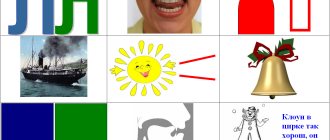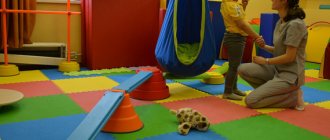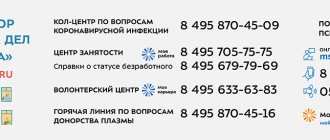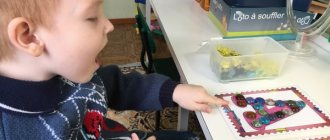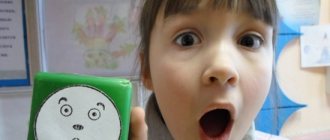Article:
The article proposes and characterizes the mandatory sections of the information stand for parents in the speech therapy group, which contribute to the development of the child: the development of auditory perception, the development of fine motor skills, the development of attention and memory, and speech development. The issues of the relationship between kindergarten and family have recently received increasing attention, since the child’s personality is formed primarily in the family and family relationships. An important part of working with parents is the development of the child, the formation of a close relationship between parent and child. Therefore, teachers pay great attention to working with parents. Visual and informational direction makes it possible to convey to parents the necessary information in an accessible form, to tactfully remind them of parental responsibilities and the responsibility of their implementation for the development of the child. Therefore, it is necessary to inform the parents of students about the features of the work through stand design. The stand for parents should have the following sections: Development of auditory perception in children. You always need to talk to your child and everyone knows this. The more a child hears, the more he learns, since through auditory perception an idea of the world around him is indicated. The development of auditory perception is crucial for the emergence of oral speech. This will be facilitated by various games and gaming techniques. - The game “Where the alarm clock rings”, the child must find by sound and, if possible, say or show. — Game “What clock is ticking.” The child must determine which clock makes a sound, small or large. Development of fine motor skills. The development of fine motor skills in children is of great importance. It is possible to use games and gaming techniques: - circle the outline. Trace stencils depicting various objects, cut out, hatch. In the future, use children's works for games in the group and at home; - embroidery. Embroider a simple object image on cardboard along the contour; - game “Feed the chick and chick-chick.” Rice and millet are mixed. Chick loves millet, and Chick loves rice. Development of attention and memory. Games that promote the development of attention and memory. - "TV"; “Guess what’s missing?”, “Guess what’s added?” etc. - “Remember the pictures”; - “Repeat the words.” Speech development. Games on a lexical topic are offered: - “What will happen if...”; - “What first, what next”; - “More than... less than”; - "Who's doing what?" The sun is shining, shining, warming, and also... - “One is many”; — Game “What if...” (development of coherent speech and thought processes); - “Whose purchases?” Thus, the material at the stand for parents is informational, educational, advisory in nature and is aimed at cooperation between parents and children.
Organization of a speech therapy corner in a group of combined and compensatory orientation
The effectiveness of correctional and developmental work with children with SLD largely depends on the interaction between the speech therapist and other specialists. And, above all, speech therapists and educators. In the evening, teachers consolidate the skills acquired by children on the instructions of the speech therapist. In order for correctional work to be successful, this must be done and not only the speech therapist is responsible for correctional work, the main assistants are educators and parents.
The teacher-speech therapist interacts with teachers in various forms: consultations, conversations, interaction notebook/
The teacher conducts classes in the speech therapy corner in the afternoon on the instructions of the speech therapist. Children, together with the teacher, do articulation and breathing exercises. Children practice articulation of sounds and automation in words using object pictures. Sentences and short stories are made up with these words, and games are made to differentiate the given sounds. Work is underway to expand vocabulary, grammatical structure and coherent speech. To carry out high-quality work, it is necessary that the speech corners be filled with practical material and function!
The speech corner in the group should include the following sections:
- articulatory motor skills : (mirror, card index, pictures for articulation exercises, sets of exercises for certain groups of sounds).
- automation of sounds : albums on automation of sounds V.V. Konovalenko, S.V. Konovalenko; game exercises L.A. Komarova; didactic manuals Spivak, Egorova, tongue twisters, card indexes.
- breathing : card indexes, turntables, pipes, balloons for inflation, bubbles, soap bubbles, pillows, exercise equipment for breathing development, disposable straws, games with water (grow foam, storm in a glass, boats), football with an air stream, “snake tongue” and so on.;
- phonemic hearing : musical toys, noisy boxes, card index of games.
- vocabulary : pictures reflecting the lexical topic being studied (plot and subject); educational puzzles, games: lotto, “Pick a Pair”, “Who Can Name More”, “Part and Whole”, children’s “Professions”, “all year round”, “family”, “trees”, etc.; game file.
- grammatical structure of speech : didactic manuals by N.E. Teremkova, N.S. Ruslanova, Z. Agranovich, Kosinova E.M., card index of games
- coherent speech : plot pictures, diagrams of descriptive stories, series of pictures, mnemonics, texts for retelling, Arbekova’s manuals by age
- literacy : word diagrams, sentence diagrams, a manual for sound analysis of words, traffic lights, simple puzzles, isographs, etc. manual by Z. Agranovich
- fine motor skills : small toys, tops, lacing, mosaics, puzzles, stencils for shading, internal and external tracing, pencils, etc.;
- higher mental functions : cut pictures, dominoes, “The fourth odd one”, “Color and shape”, “Recognize by contour”, etc...
I wish you success!
Zaitseva Lyubov Viktorovna teacher-speech therapist, MODU "Kindergarten No. 211", Yaroslavl
Practice using the information block for parents on lexical topics.
The problem of organizing correctional work to overcome speech impairment in preschool children (5-6 years old) with such a type of speech pathology as underdevelopment of the lexico-grammatical structure is relevant, in our opinion, because lexico-grammatical operations for generating speech are extremely complex and involve a fairly high level of development of analytical and synthetic activities.
To increase the effectiveness of correctional influence, we consider the need for integrated work in the interaction of all subjects of educational activity: speech therapists, educators, parents, physical education instructor, music director, art teacher.
An integrated approach to overcoming a speech defect involves the active participation of parents, who consolidate all the speech skills and abilities of children acquired in kindergarten in everyday life.
The purpose of the pedagogical experience: to create in kindergarten the necessary information block of complex correctional work to overcome lexical and grammatical speech disorders in preschool children (5-6 years old).
This system of work has been used in the work of speech therapists at the MADOU “Kindergarten No. 395” of the city of Perm A. F. Buzmakova, E. G. Bugrova for 15 years, has a positive expert opinion from Art. Researcher at the Laboratory of Special Education of PKIPKRO E. E. Ayupova.
Material for the design of the “Speech therapist advises” stand
The child will have to master the entire system of knowledge through oral and written speech. COMPONENTS OF SPEECH must be formed in children by the beginning of school :
1. ABILITY TO LISTEN AND HEAR OTHERS.
If such a skill has not been developed, the child may have difficulties in mastering the material that is presented orally by the teacher. Such a child has difficulty communicating with peers and does not control his behavior.
2. SOUND SIDE OF SPEECH.
Correct pronunciation and clear distinction of sounds by ear are necessary conditions for mastering writing and reading. The child must not only be able to clearly pronounce complex words (for example: motorcyclist, traffic controller), but also be able to speak loudly or quietly, faster or slower. A letter is a reflection of a child’s oral speech. Violations in this area lead to errors in writing due to reliance on incorrect pronunciation.
3. FUNCTIONS OF LANGUAGE ANALYSIS.
To write correctly, children must be able to: divide sentences into words; divide words into syllables; be able to identify all the sounds in words and identify them. Errors in language analysis appear in writing in the distortion of words and sentences (omission of letters, rearrangements, etc.)
4 .
LEXICAL ASPECT OF SPEECH (VOCABULARY).
Children should be able to accurately select words, use complex words (for example: long-legged), use phrases with a figurative meaning (for example: headlong), select synonyms (for example: brave - courageous - courageous). Poor vocabulary affects reading comprehension, even when reading is technically correct. In the future, errors may occur in the selection of test words in the letter.
5. GRAMMATICAL ASPECT OF SPEECH.
To write correctly, children must be able to change words and form new ones, understand and use prepositions correctly, otherwise mistakes in endings, omissions or substitutions of prepositions may occur (over the table - “on the table”, went to the forest - “went to the forest”). There may be difficulties in composing sentences, omissions of sentence members, etc.
6. CONNECTED SPEECH.
Children should be able to communicate freely with adults and peers, talk about experienced events, retell fairy tales, and describe objects. Violation of independent coherent speech can cause difficulties in retelling or composing a story, writing essays and presentations.
To PROVIDE HELP
to students with such speech disorders, timely speech correction and preventive work to prevent reading and writing disorders are necessary. For this purpose, our school employs speech therapists who conduct special correctional classes. During speech therapy classes, the child develops a short-term skill of correct speech, which must be controlled by all adults surrounding the child and consolidated in various types of activities. Thanks to the joint work of a speech therapist, educational psychologist, teachers and parents, it is possible to promptly and efficiently help children overcome speech impairments, successfully master the Russian language and reading program, and form a positive attitude towards learning.


